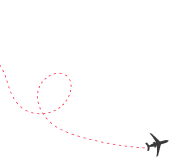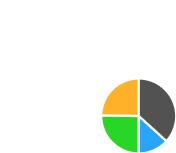Describe a Time When You Used a Map- IELTS Cue Card
Last updated: Feb 5, 2025In the IELTS Speaking test, you might encounter a cue card question that asks you to describe a time when you used a map. This question falls under Part 2 of the speaking section, where you are given a topic and asked to speak about it for 1-2 minutes. While the question may seem straightforward, a well-structured and detailed response will help you score higher. In this blog, we’ll explore how to answer this question effectively, providing tips and sample answers that will guide you in your preparation. By understanding how to organize your response and include key details, you can confidently handle this type of question during the IELTS exam.

Table of Contents
Introduction to IELTS Cue Cards
The cue card round comes under part 2 of the speaking section. This round assesses your speaking abilities on a given topic. Moreover, students are given a task or cue card that contains a topic and some pointers which they need to cover in their answers. You will get one minute to prepare for the task and two minutes to talk about your topic. Moreover, IELTS cue cards are designed to evaluate your English skills majorly in four areas that are: fluency and coherence, vocabulary, grammar, and pronunciation. The topics which are presented to students are based on personal experiences, opinions, or ideas. Further, let’s talk in the next section that how you can answer for your cue card round.
How to Answer the Cue Card?
While answering the cue card, you should always use a logical approach with your answers. Further, you must start by introducing the topic and adding relevant examples and details. You need to use the one minute time to prepare for your topic. Overall, by the end of the IELTS speaking part 2 the examiner will get an idea of your score.. Now let’s look below at the image and see what your cue card will look like in the exam.
There are various points that you need to cover in your IELTS cue card topic “Describe a Time When You Used a Map.” The pointers are as follows:
- When was it
- Where you were?
- What did you do?
- And explain how you felt about it.
Let us show you what your cue card will look like in the exam so that you have a better understanding. See the image.

As you have got an idea of what your cue card looks like. Now in the next section, read the three sample responses for the cue card “Describe a Time When You Used a Map.”

Describe a Time When You Used a Map- Sample 1
Here is the first sample answer which you can execute in your cue card round. Read it and learn the format of answering the cue card.
Introduction
In today’s technology-driven world, getting lost is quite impossible. In earlier times, when electronic apps didn’t arrive, people would get lost. Today, I want to share my experience when I used a map.
When Was It?
The very first time I used a map was when I went to Delhi for my cousin’s wedding and I had to use Google Maps to move from one place to another. As Delhi is a large city and I was bizarre with the locations and the roads, it was very hard for me to move. This experience turns out as both challenging and gratifying in its unique way.
Where You Were?
As I mentioned, I went to Delhi for my cousin’s wedding and it was my first time visiting the city. However, I don’t usually use maps, but when I go to a new place and out of my city I find myself lost so I use maps. In addition, my cousin’s family wanted to have a destination wedding so I went earlier as me and my cousin wanted to spend time and traverse the whole city, especially the Sarojini Market.
What Did You Do?
Google Maps made our search easier for the places we wanted to visit, so we managed to move around the city quite easily. The roads we contracted to use to move from one place to another in Delhi were like an adventure ride, as I had never seen that area of Delhi. Also, the driver had no idea what I was talking about, so I directed him to use Google Maps, and my cousin belonged to that area so he said to drive through a local area of Delhi.
And Explain How You Felt About It.
The experience of using Google Maps in Delhi was beyond words. I was relieved and happy that the map helped me reach all my destinations without any issues. It was very accurate and easy to use, which made my trip memorable enjoyable, and stress-free too. I couldn’t imagine navigating the city without the help of Google Maps.
Conclusion
Overall, my experience of using Google Maps was a bonus for me and to all the road trippers and other adventure trippers.

 Access speaking Mock Test
Access speaking Mock Test Describe a Time When You Used a Map- Sample 2
The second sample answer that you can execute in your IELTS speaking section. Read it for a better understanding.
Introduction
Nowadays maps play a significant role in all our lives as they are very comfortable to use. Today I would like to share my experience when I used a map to navigate my way.
When Was It?
The first time I used a map when I decided to go on a solo adventure trip to Jaipur, that is a city of rich history and culture. I always wanted to explore all the places of Jaipur so I already prearranged the hotel through my phone, so I was not required to search for the hotels a lot for my stay.
Where You Were?
I was in the city of Jaipur, and I wanted to explore every part of the city on my own, but at the same time, the moment I reached Jaipur, I was unable to find the location of my hotel. Thus, I used Google Maps at that time as I had no option left. As it was my first time using the map I was a little confused but somehow I did.
What Did You Do?
I used a map to find the different routes and to procure real-time traffic information when I couldn’t find my housing. The Google map allowed me to reach my destination without any difficulty. It was so accurate and attested that it saved me a lot of time and effort.
And Explain How You Felt About It.
I felt very happy and satisfied that Google Maps saved me a lot from getting lost in the city. If I hadn’t taken the help of maps, I would not been able to move freely and reach my hotel. I can say that it is always good to use maps as it would tell you the right direction and path to your destination.
Conclusion
Overall, I rigorously enjoyed my entire trip and the map played a major role in this trip. Everything was so calm and peaceful in Jaipur, and it was a wonderful feeling with so close to nature.


Describe a Time When You Used a Map- Sample 3
The third sample answer for the cue card which you can implement in your IELTS exam. Read it properly and get an overview.
Introduction
Maps play an important role in everyone’s life because it is very easy to use. Anyone can use the map and know the instant location easily. However, today I am going to share my experience when I used the during my school trip to Manali.
When Was It?
I used a map when I was travelling at a beautiful hill station, which is the most well-known place for tourists during the time of summer vacation. At that time, I wasn’t aware of how to use a map I received tutelage from my teacher as Manali is a big city and the school authorities did not want any kind of misfortune to happen to any student. So they asked us to use a map and also taught that how to use it effectively.
Where You Were?
As I mentioned, I was in Manali and my friends wanted to explore the Hadimba Devi Temple, in Manali, which is a famous temple among tourists. We initially searched for the temple with the help of Google Maps, but somehow we didn’t find it. After making a few attempts, I learned about the proper usage of maps and we set our location from our hotel.
What Did You Do?
I showed the map with the location from our hotel to the Hadimba Devi Temple. Firstly, we accepted all the terms of Google Maps and followed the way it showed. Ultimately, we reached our location, which was so amazing, and we fully enjoyed ourselves there without any burden of our studies and teachers.
And Explain How You Felt About It.
I was zealous as the map guided me properly towards the temple, and it made it very convenient for me to reach there. Also, the voice assistant in Google allowed me to travel more easily, which saved me a lot of time and effort. With the help of Google Maps, the journey of Manali was memorable for me and my friends.
Conclusion
Overall, my journey of mine to Manali would not possible without the help of maps. So this was my experience of using the map for the first time.
These were the sample answers for the cue card topic “Describe a Time When You Used a Map.” Now, let’s look at the lexical resources below in the table.

Lexical Resources
In the above samples, we have underlined the difficult words. Thus, in this section, you will get to know the meaning of those difficult words which will enhance your vocabulary for IELTS exam.
| Lexical Resources | Meaning |
| Bizarre | Very strange and unusual |
| Gratifying | Pleasing |
| Traverse | To move or travel through an area |
| Navigating | To direct the way |
| Alleviated | To make something bad such as pain |
| Prearranged | Arranged at an earlier time |
| Procure | To get something |
| Housing | A place to live in |
| Attested | To prove something that is true |
| Rigorously | In a careful way |
| Tutelage | Help or advice on how to do something |
| Misfortune | Bad luck |
| Usage | Something is used |
| Ultimately | Finally after such attempts |
| Zealous | Eager to know |
Overall, these were some of the hard words with their meanings that can help in your cue card round. The next section will talk about the follow-up questions that an examiner will ask you in IELTS speaking part 3.
Follow-Up Questions with Answers
As soon as you complete your cue card round, the examiner will ask you some of the possible follow-up questions that you need to answer. In these questions, you need to express your views and opinions to achieve a high band score. Thus, it is called a two-way conversation between the candidate and the examiner. Now let’s have a look at some of the follow-up questions with answers that can be asked after your IELTS speaking part 2.
- How often do you use maps in your daily life?
I use maps often regularly in my daily life, especially when travelling to unknown places or planning some trips. Whether I am finding a new restaurant, exploring a city, or even finding a friend’s house, maps on my phone are always on and have become an essential tool for effecting navigation. They provide a sense of direction and help me save time while ensuring I reach my destination.
- Have you ever had a challenging experience with a map that led to confusion?
Yes, I have recalled a challenging experience with a map during the time of my solo trip. The map wanted more details, and I took a wrong turn. So, it led to confusion, and I eventually searched for help and corrected my direction. Since then, I’ve become more careful about checking the map details before going on unknown routes.
- What do you think is more convenient than using a paper map or a map of your phone?
Phone maps are more trustful, as they tell the exact and right location but using them out of the country presents its own set of location- and destination-based issues. A map could consider the cell’s coverage, and you need to download a digital map before using it.
- Do you think traditional paper maps will become obsolete? Why or why not?
Traditional paper maps have become less common because of the widespread use of digital navigation tools. As technology gets advanced, more people rely on smartphones and GPS devices for navigation, so it makes paper maps less essential. However, some may still prefer paper maps for their reliability and nostalgia, so they may need updating.
Tips to Excel in IELTS Cue Card
There are some tips have been mentioned that will help you excel in the cue card round of the speaking section. Read them and use them in your exam.
- Start by introducing the topic and providing some content.
- Apply appropriate grammar structures and tenses.
- Enhance your preparation by practicing with the official IELTS speaking test materials.
- Practice speaking on a range of topics to improve your fluency and vocabulary.
- Enhance your language skills by learning new words, phrases, and idioms related to a wide range of topics.
- Take notes of the key points in your one minute preparation time.
Conclusion
To sum up, the IELTS speaking section is a challenging task for students, but with the right techniques and strategies, students can excel in it. Thus, we have provided the Band 8+ sample answers for the cue card topic “Describe a Time When You Used a Map” Further, we also talked about the follow-up questions and some tips that will help you ace this cue card in the exam. Moreover, if you want to gain more experience or exposure on the cue cards take our free IELTS mock test of the speaking section. Also, join our offline or online IELTS classes at Gradding.com.
0 comments

Practice Makes a Man Perfect!Take FREE ielts Mock Tests
Start FREE Mock TestPredict your IELTS Band

98% students got exact IELTS Band
What is your Target IELTS Band?
Get familiar with the Real IELTS Exam for Free!
Start Free Mock TestWe are available in :
BangaloreAhmedabadJaipurHyderabadKeralaPuneChandigarhMumbaiGurgaonChennaiKolkataTrivandrumNoidaKochiCalicutKottayamKollamThrissurIndoreUdaipurdisclaimer:logos and other registered trademarks of universities used on this platform are held by their respective owners. Gradding does not claim ownership or association on them, and their use is purely for informational and illustrative purposes.











